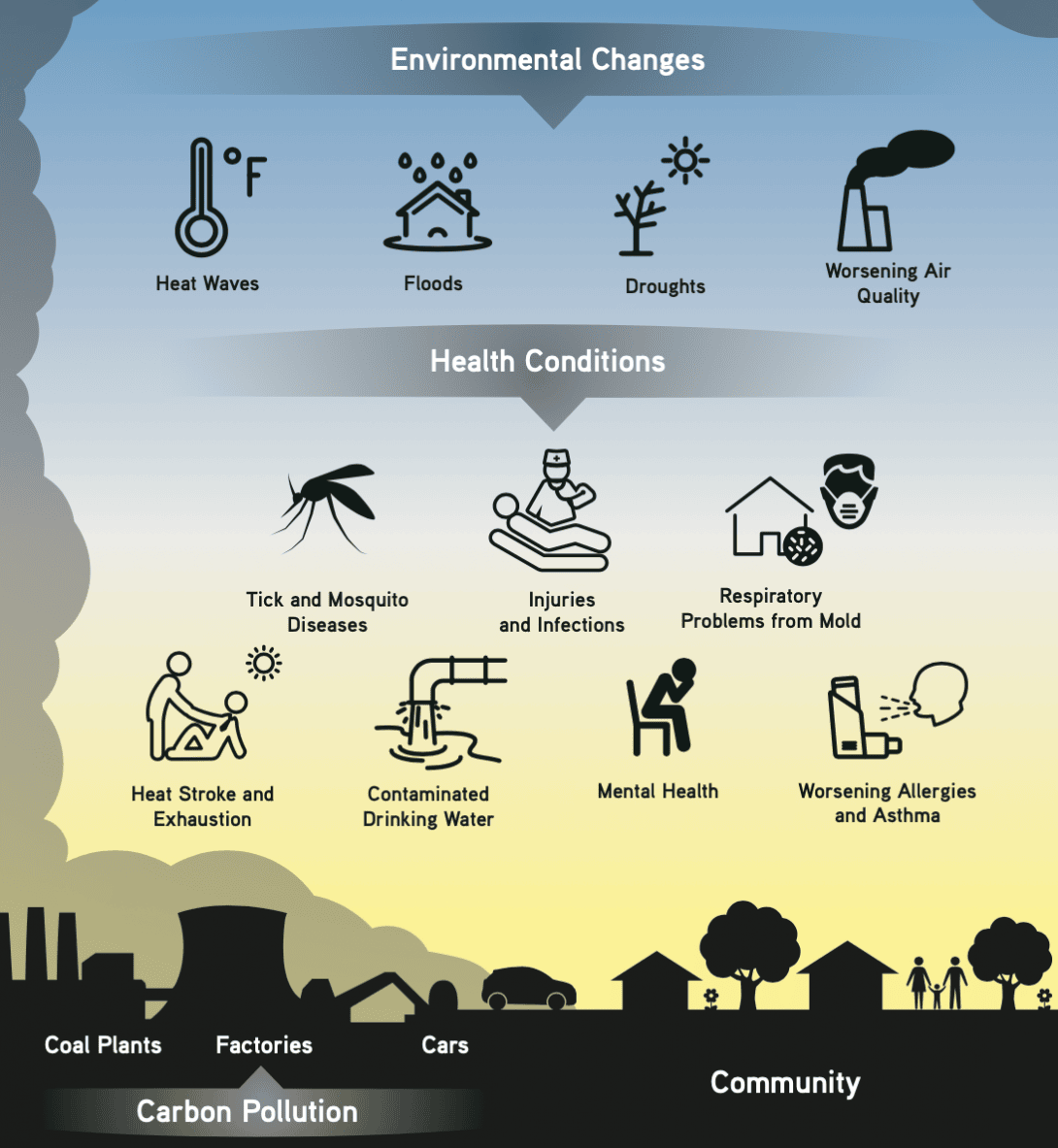Climate change is a global issue that is having a significant impact on public health. The rise in temperatures, sea levels, and extreme weather events caused by climate change is already having a detrimental effect on our environment and health. In this article, we will explore the impact of climate change on public health and how it is affecting the current generation and environment while also being a threat to future generations and the environment.
Increased Heat-Related Illnesses:
As temperatures continue to rise, we are seeing a significant increase in heat-related illnesses. Heat exhaustion and heatstroke can cause severe health problems, including dehydration, kidney failure, and even death. The elderly, children, and those with pre-existing medical conditions are particularly vulnerable to heat-related illnesses.
Air Pollution:
Climate change has also led to an increase in air pollution, which can have severe consequences for public health. Poor air quality can cause respiratory problems, including asthma, lung cancer, and chronic obstructive pulmonary disease (COPD). Children, the elderly, and those with pre-existing medical conditions are particularly vulnerable to the effects of air pollution.
Spread of Infectious Diseases:
Climate change is also causing a shift in the geographic distribution of some infectious diseases. Mosquito-borne diseases like Zika and dengue fever are now becoming more prevalent in areas that were previously unaffected, as rising temperatures create new breeding grounds for mosquitoes.
Extreme Weather Events:
Climate change is causing more frequent and severe extreme weather events, including hurricanes, floods, and wildfires. These events can lead to physical injuries, respiratory problems, and mental health issues, such as anxiety and depression, among those affected. The aftermath of these events can also cause long-term health problems, including contaminated water supplies, mold, and increased risk of infectious diseases.
Threat to Food and Water Security:
Climate change is also threatening food and water security, which can have severe consequences for public health. Droughts, floods, and extreme weather events can damage crops, leading to food shortages and malnutrition. Changes in rainfall patterns can also affect water supplies, leading to water scarcity and poor water quality, which can cause waterborne illnesses.
The Future Impact:
If we do not take action to mitigate climate change, the impact on public health will only worsen. The World Health Organization estimates that climate change will cause an additional 250,000 deaths per year between 2030 and 2050. The impact will be particularly severe in low-income countries, where healthcare infrastructure is often inadequate to deal with the increased demand caused by climate change.
Climate change is having a significant impact on public health and is already affecting the current generation and the environment. If we do not take action to mitigate climate change, the impact on future generations and the environment will be even more severe. It is essential to take steps to reduce greenhouse gas emissions, increase the use of renewable energy sources, and implement sustainable practices to protect public health and the environment. It is our responsibility to take action now to ensure a healthy and sustainable future for ourselves and future generations.

